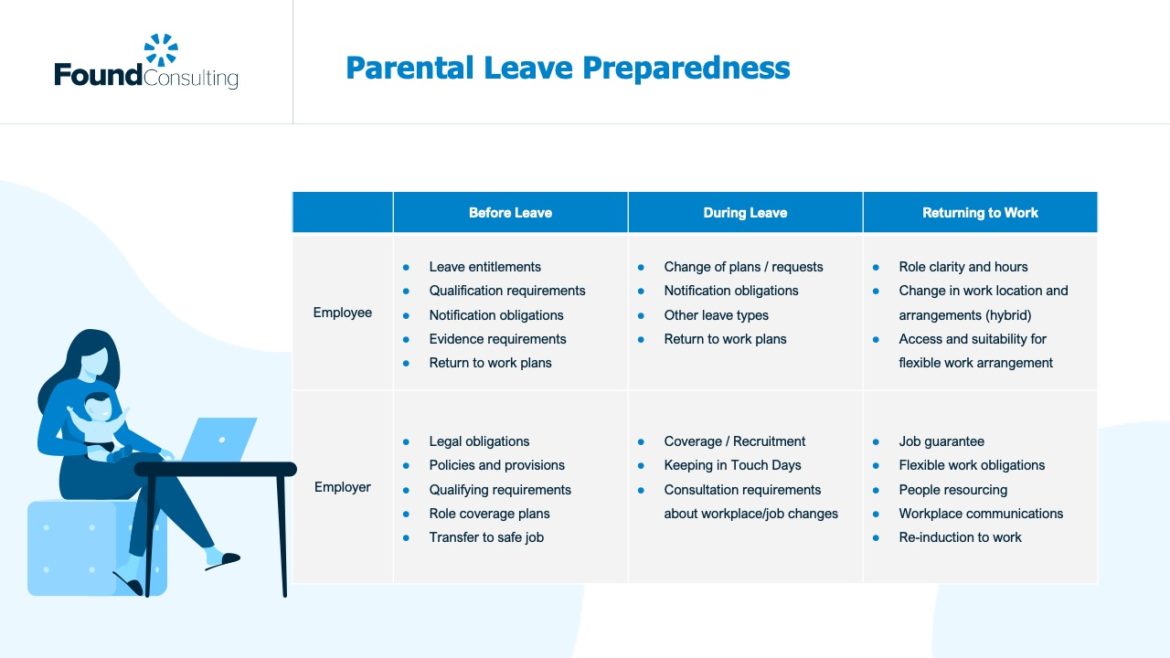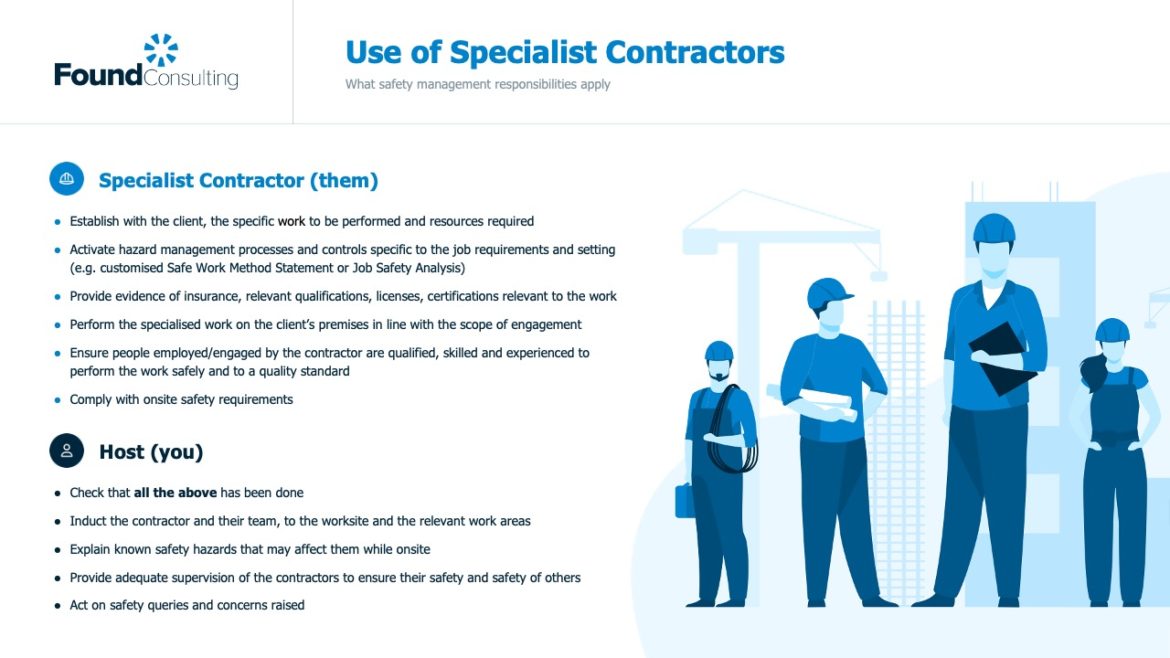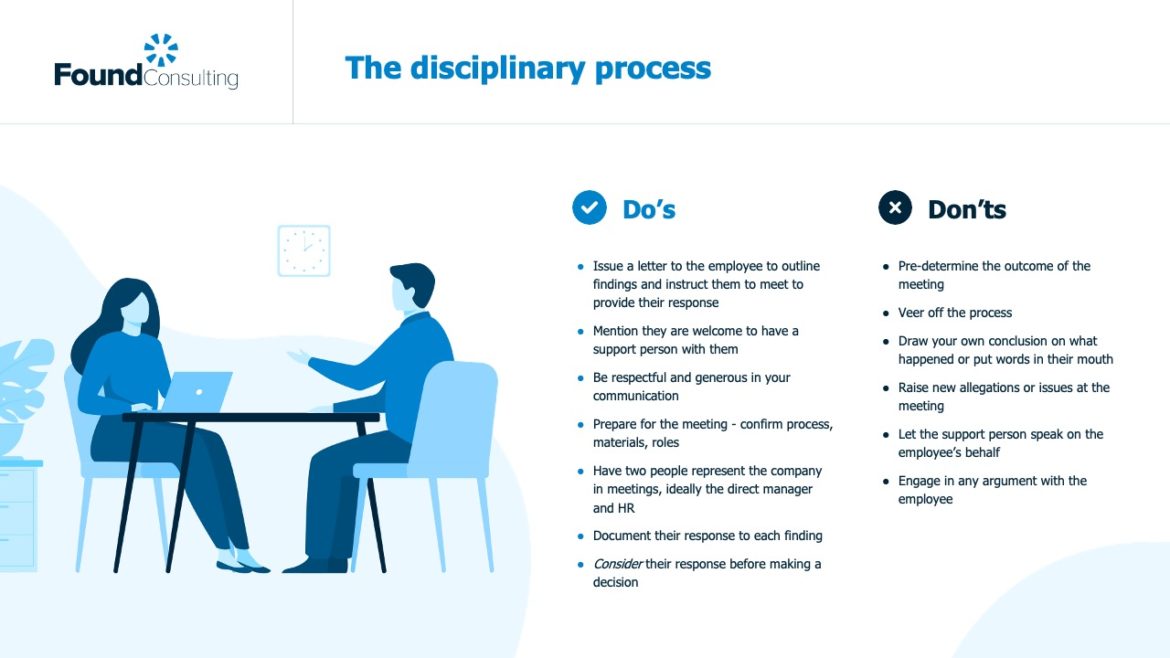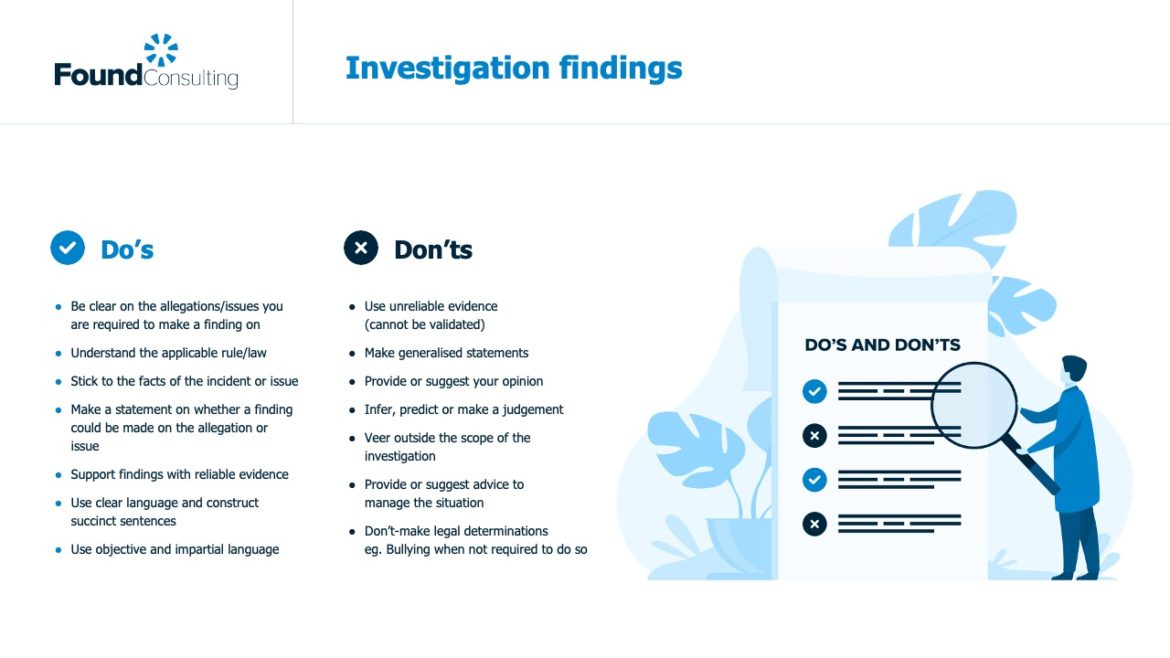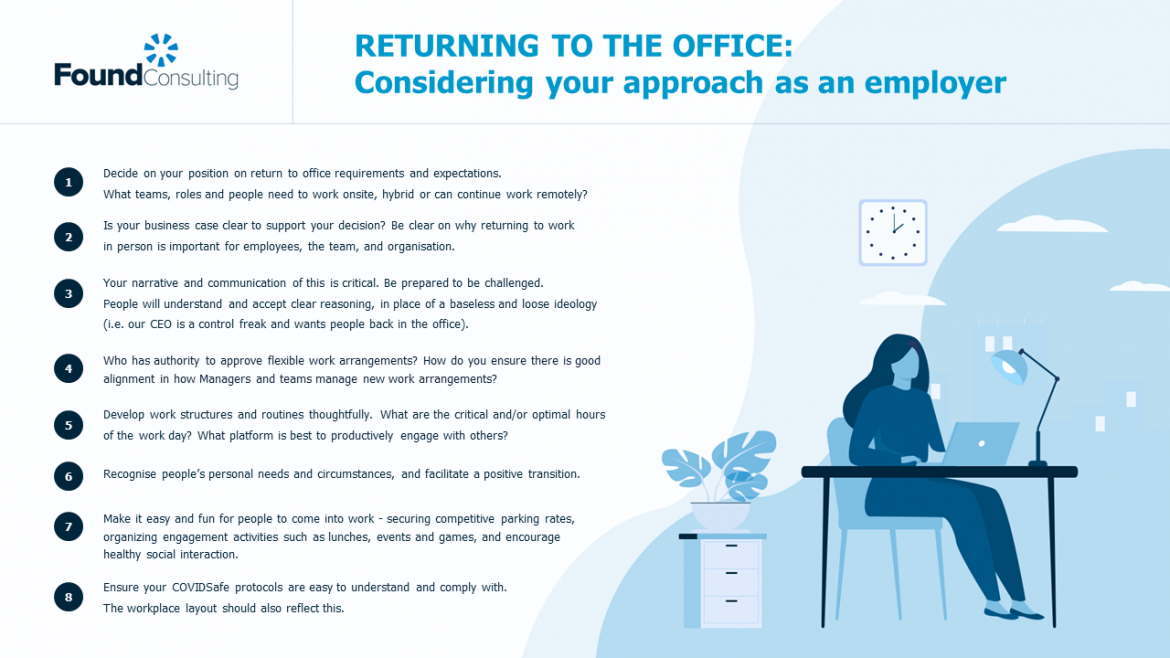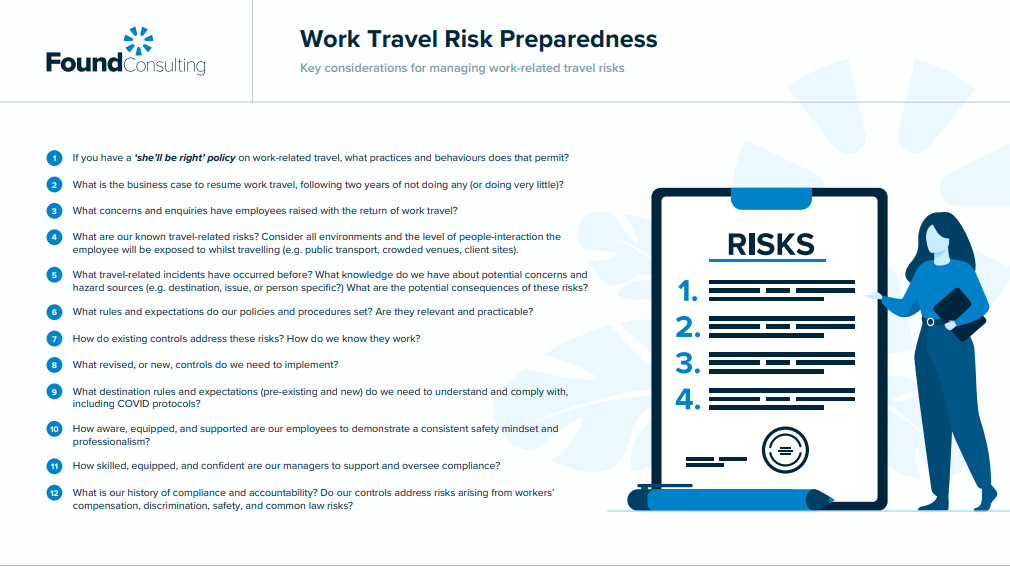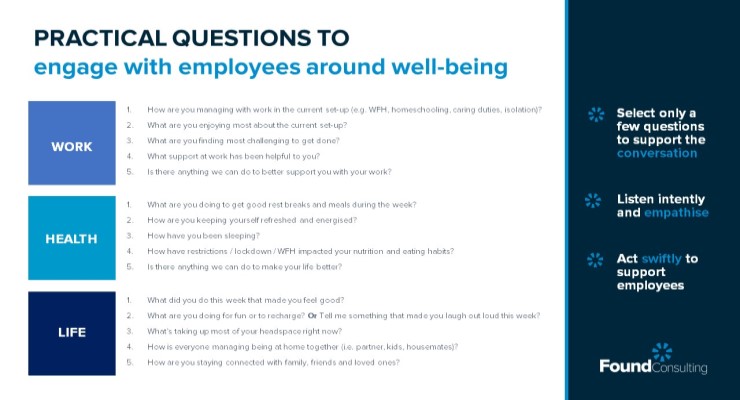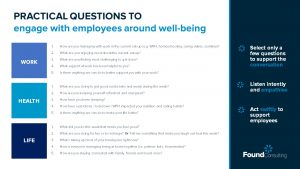Parental Leave Preparedness
https://foundconsulting.com.au/wp-content/uploads/2022/05/Found-Consulting-Parental-Leave-Preparedness-1024x576.jpeg 1024 576 Found Consulting Found Consulting https://secure.gravatar.com/avatar/9361046e217be34b3b7fbbd5c5e5ab69?s=96&d=mm&r=gManaging Principal Karen Luu outlines what employers and employees need to consider when preparing for a Parental Leave, ie. before the leave commences, what happens during, and when the employee returns to work.
Download your copy here: Parental Leave Preparedness
If you have any questions, please contact our team who are happy to provide tailored advice for your business and workforce.
